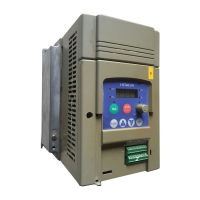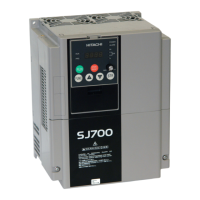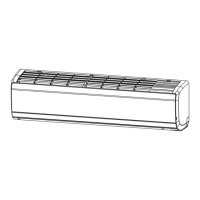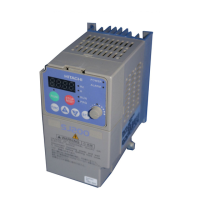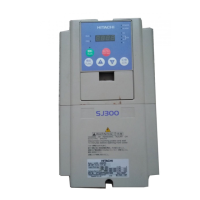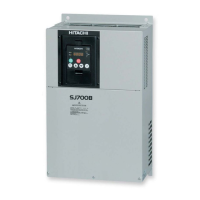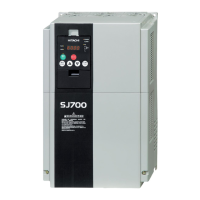SJ100 Inverter
Configuring
Drive Parameters
3–25
Miscellaneous Settings
The miscellaneous settings include scaling factors, initialization modes, and others. Here
we will cover some of the most important settings you may need to configure.
B83: Carrier frequency adjustment – the internal switching frequency of the inverter
circuitry (also called the chopper frequency). It is called the carrier frequency because
the lower AC output frequency of the inverter “rides” the carrier. The faint, high-pitched
sound you hear when the inverter is in Run Mode is characteristic of switching power
supplies in general. The carrier frequency is adjustable from 500 Hz to 16 kHz. The
audible sound decreases at the higher frequencies. For settings above 12 kHz, you must
derate the inverter output current by 20% (due to increased heating).
NOTE: When DC braking is performed, the inverter automatically holds the carrier
frequency at 1 kHz.
NOTE: When the inverter is in sensorless vector mode, use B83 to set the carrier
frequency greater than 2.1 kHz for proper operation.
NOTE: The carrier frequency setting must stay within specified limits for inverter-motor
applications that must comply with particular regulatory agencies. For example, a
European CE-approved application requires the inverter carrier to be less than 5 kHz.
B84, B85 – Initialization codes – these functions allow you to restore the factory
default settings. Please refer to page 6–8 for full instructions on restoring factory
defaults.
B86 – Frequency display scaling – you can convert the output frequency monitor on
D01 to a scaled number monitored at function D07. For example, the motor may run a
conveyor that is monitored in feet per minute. Use this formula:
B90 – Dynamic braking usage ratio – This parameter limits the amount of time the
inverter can use the dynamic braking accessory device without entering the Trip Mode.
Please refer to page 5–5 for more information on the dynamic braking resistor.
Scaled output frequency (D07) Output frequency (D01) Factor (B86)×=
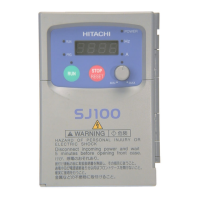
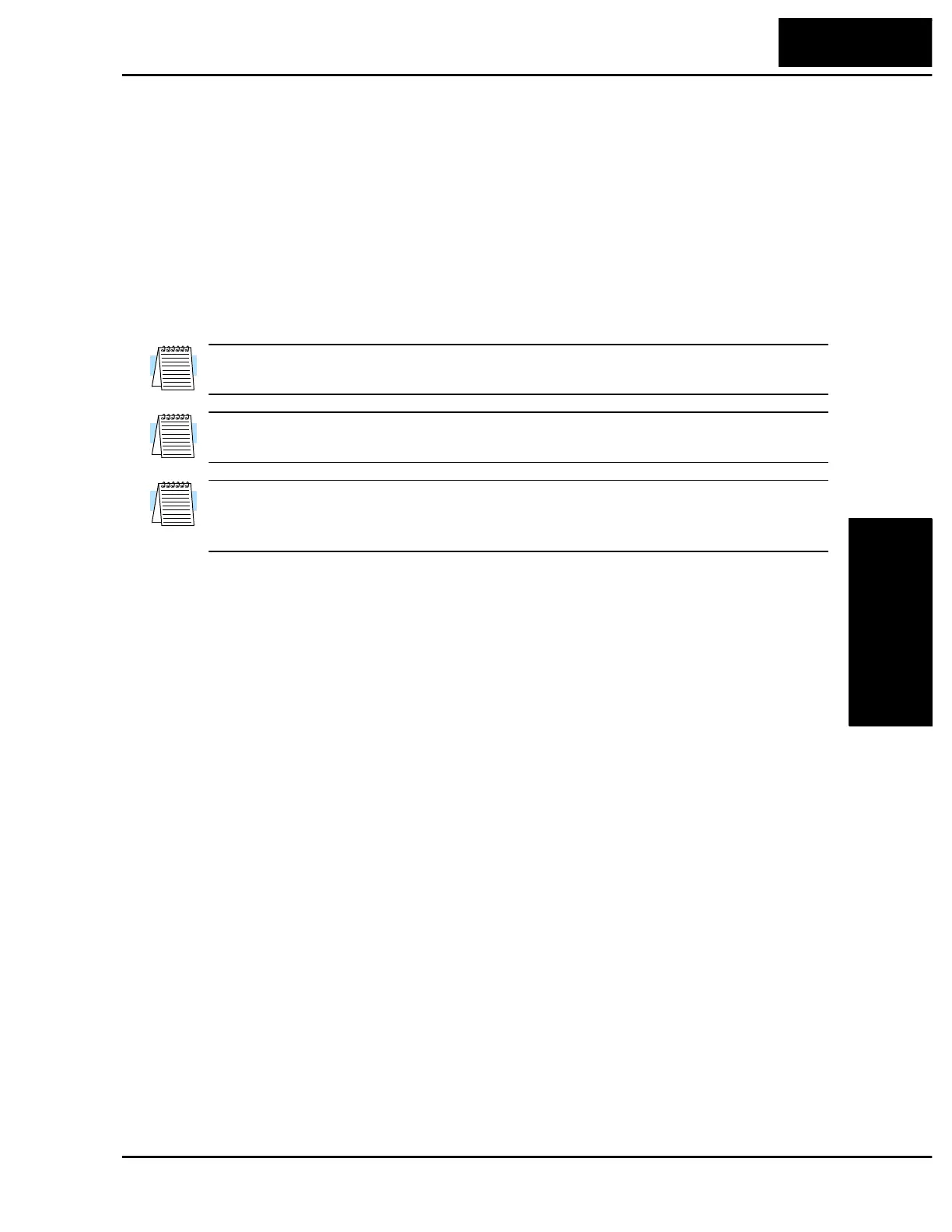